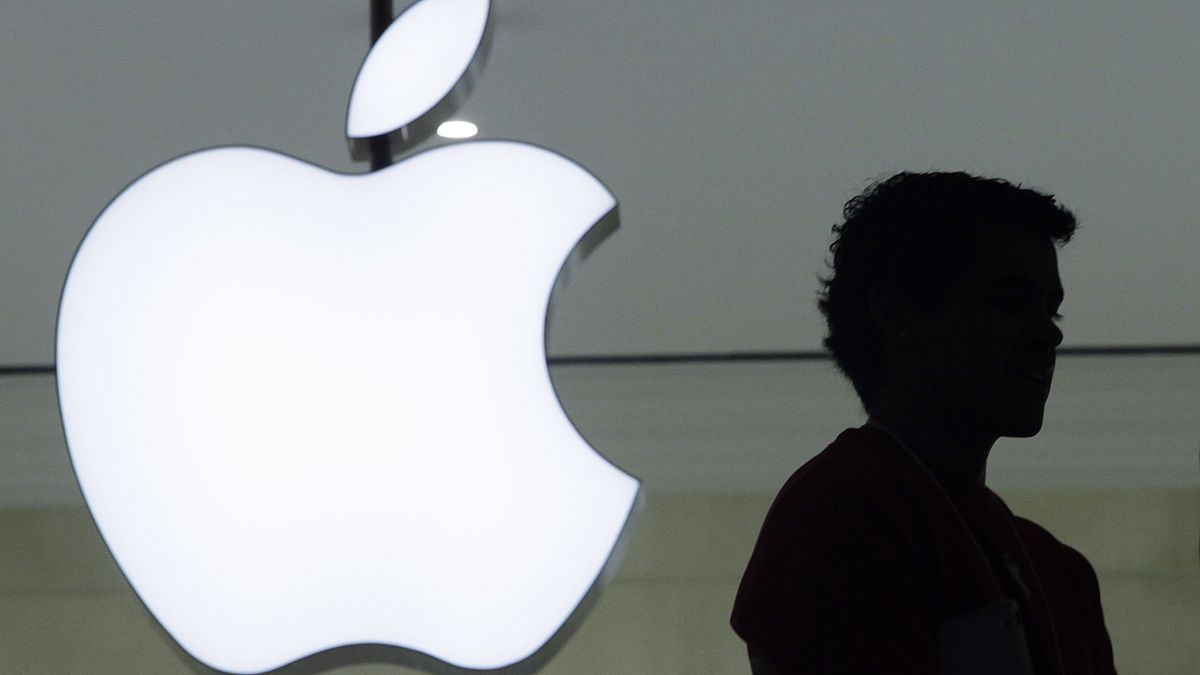


Tech companies continued to be some of the world’s most valuable brands this year, boosted by ongoing strong brand loyalty, as well as new innovations in artificial intelligence.
The world’s top 500 most valuable brands grew their brand value by 10% in the last year, coming up to $9.5tn (€9.14tn) in 2025. This was in contrast to global economic growth, which came up to 3%. Tech brands led this rise, with three of the top five brands being tech companies.
Brand Finance released its Global 500 report on Tuesday, which revealed the 500 most valuable brands globally for 2025.
Apple took the crown once again in first place, with a brand valuation of $574.5bn (€552.94bn) in 2025, according to Brand Finance, which was an increase of 11%. The brand has captured the top spot every year since 2021, except for 2023, when it marginally missed out by 1%, when Amazon took the top spot.
This year, Microsoft took second place, with its brand valuation soaring 35% to $461.1bn (€443.8bn). Google came in at third position, with a brand valuation of $413.0bn (€397.62bn), which was a rise of 24% compared to the last year.
Amazon took fourth place, with a brand valuation of $356.4bn (€343.2bn), which was a jump of 15%, whereas Walmart came in at fifth position, with a brand valuation of $137.2bn (€132.12bn), a rise of 42%.
Samsung, TikTok/Douyin, Facebook, Nvidia and State Grid Corporation of China were also amongst the top 10 brands this year. Nvidia was part of the top 10 list for the first time, following its brand value surging 98% in the last year.
TikTok/Douyin, DraftKings, Fanduel, Nvidia and AMD were some of the companies which had seen the most brand value growth since 2020, along with Pinduoduo, BYD, Apple, TSMC, Microsoft and Lilly.
David Haigh, chairman and chief executive officer (CEO) of Brand Finance, said in a press release: “Our analysis of what brands have grown the most since 2020 reveals that technology companies do not have a monopoly on sustained brand growth.
This longer-term view also reinforces another important global trend: how Chinese brands like TikTok, Pinduoduo, and BYD are leading the charge by creating value, and challenging established brand leaders. As China continues to refine its brand-building strategies and focus on quality, we expect to see more Chinese companies enter the global marketplace in 2025.”
Apple’s brand value has increased heavily lately due to its ongoing strong brand loyalty. The company launched the iPhone 16 in September 2024, along with the iPad Pro and iPad Air back in May. The iPad mini was also launched in October 2024.
However, it has also diversified more recently, while also furthering its artificial intelligence progress.
Haigh said in an earlier press release: “Apple has grown its brand value through strategic diversification and premiumisation, moving away from heavy reliance on iPhone sales towards ventures into wearables and services such as Apple TV subscriptions.
“According to our research, more than 50% of respondents recognised Apple as expensive, but worth the price, reinforcing the brand’s ability to demand a price premium”.
Similarly, Microsoft has also been investing heavily in artificial intelligence in the last year, especially through collaborations with OpenAI. This is a long-term partnership worth several billions of dollars, which focuses on supercomputing and new AI-powered experiences.
Amazon’s cloud computing operations and e-commerce have drawn a lot of investor optimism in the last year, contributing to the brand’s growth. This has been helped by the company’s growth in revenue in the past year. Furthermore, the company has focused more on increasing its selection of goods and enhancing its delivery speed.
Similarly, Walmart has focused more on growing its marketing and advertising revenue in the last year, while also improving its digital services and attracting wealthier shoppers.
The United States accounted for 52.9% of the top 500 companies’ total brand value, according to Brand Finance, with 194 brands. China came in second at 15% with 69 brands. In third position was Germany, at 5.8%, with 27 brands.
Although Japan, at fourth place, accounted for 5.1% of total brand value, it had a higher number of brands than Germany, at 36. Similarly, France, at fifth position had 35 brands, but only accounted for 4.4% of total brand value.
Coming to the top industry in terms of brand value, banking took the crown at 12.7% of total brand value, with 78 brands. Retail followed closely at 11.4%, with 45 brands, whereas media was in third position at 10.3% with 24 brands. The electronics industry accounted for 8.2% of total brand value, with the internet and software industry coming in at 6.5%.